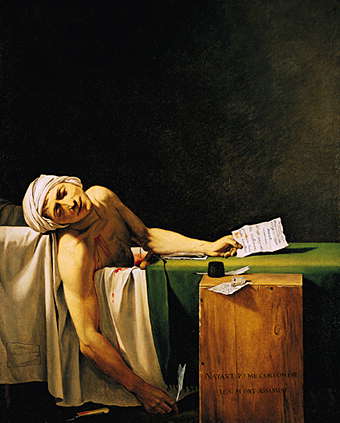Revolution
|
Literature
|
1776 American Revolution
|
Thomas Paine,
Common
Sense
|
14 July
1789
Storming of Bastille
|
William Blake,
Songs of Innocence
|
1790
People
of Paris force royal family to leave Versailles and
take up residence
in city
|
Helen Maria
Williams, Letters Written in France,
in the Summer of 1790
|
1791
|
Thomas Paine,
The
Rights of Man
|
September
Massacre 1792
|
A
Vindication
of the Rights of Woman (1792);
Elizabeth Inchbald, The Massacre
|
1.1793:
Louis
XVI beheaded; France and England at War
|
Thomas
Paine's
exile, The Age of Reason (1792-95)
|
10.
1793:
Marie Antoinette beheaded – Part of mass Terror ,
counter-revolution,
and ensuing culture of paranoid surveillance
|
Helen Maria
Williams, Letters from France
(1792-96)
|
Briefly
enacted some reforms (later revoked) such as divorce,
product of civil
marriage, abolishment of slavery (Independence
of
Haiti)
|
William
Godwin, An
Enquiry Concerning Political
Justice (1791/93)
|
1792/93
Preemptive strike
against France’s “aristocratic enemies,” starting with
Austria and
their allies, the Prussians, and eventually including
the English and
Spanish as well as most of northern Europe and Italy
|
|
1794:
Robespierre, leader of Jacobin/revolutionary faction,
beheaded
|
William
Blake, Songs
of . . . Experience
|
Through 1799:
rise
of Napoleon as general and first Consul
|
|
Napoleon
takes charge
emperor; 1803-1815: Napoleonic Wars
Peninsular
Campaign
(1811): English navy supports defense of Spain and
Portugal vs. Napoleon
|
|
Battle of
Waterloo
(1815): Allied (British [Wellington], Prussian,
Austrian, Russian) army
defeats Napoleon
|
|
|
|
